Rothschild tycoon's London home goes on sale for £17.95 million – take the tour
Rothschild is known as the founding father of British tea, and this opulent property on Regent's Park comes with its own tea house
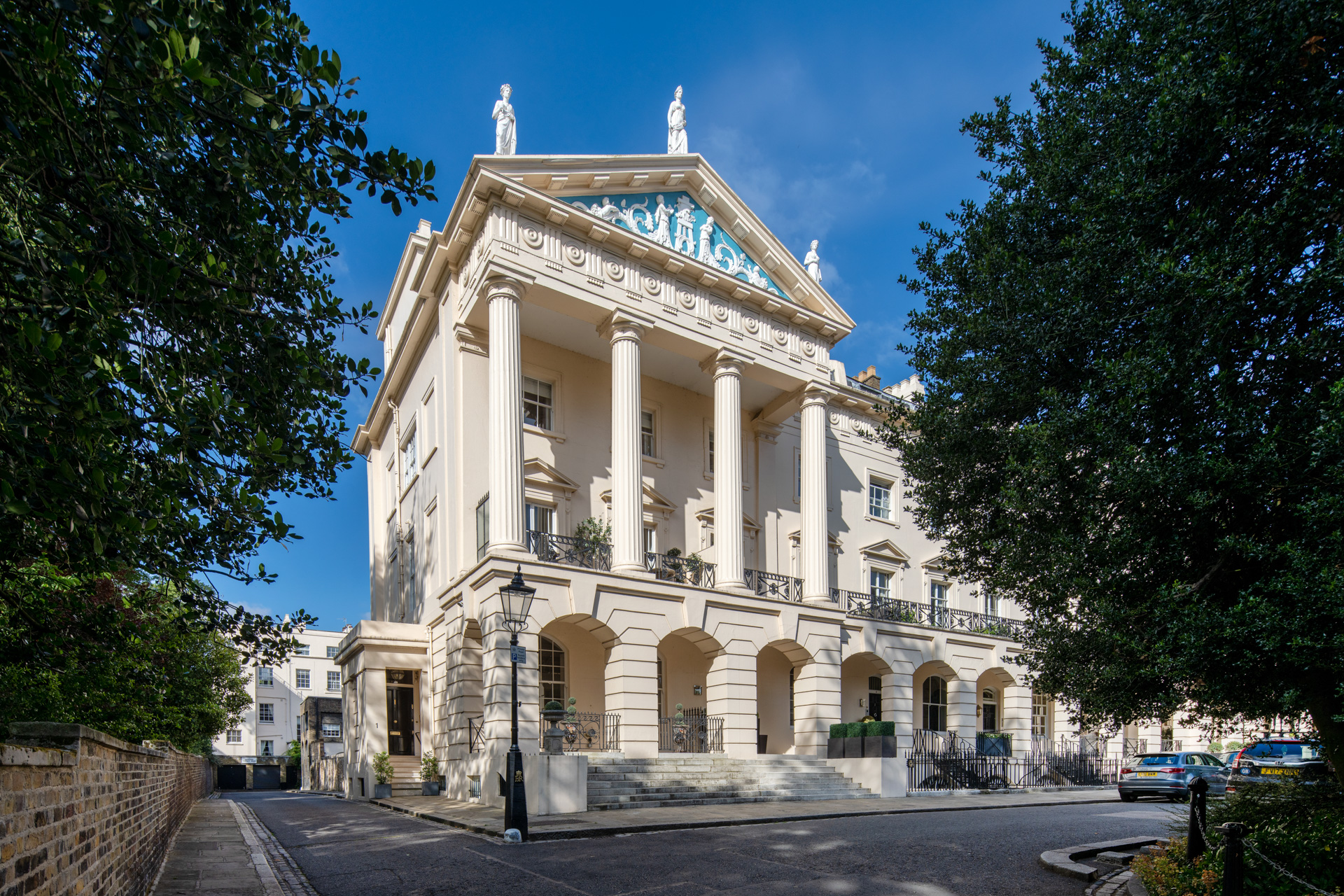

Beauchamp Estates are selling the former London home of Rothschild tycoon Baron Solomon Benedict de Worms, the founder of the Rothschild Tea Estate in Ceylon and 'father of British tea.
It is a magnificent five bedroom Grade I listed 6,469 sq ft Nash house on Hanover Terrace in Regent’s Park, London. 'This magnificent Hanover Terrace house... has its own tea house at the end of the spacious garden where the Rothschilds used to sit and take tea each afternoon,' comments Gary Hersham, Founder of Beauchamp Estates. 'Tea remains the iconic British beverage, in Britain we drink 165 million cups of tea a day, enough to fill 20 Olympic swimming pools.'
Scroll down to take the tour and to read about this extraordinary property's fascinating history. For more of the world's best homes, visit our dedicated page.
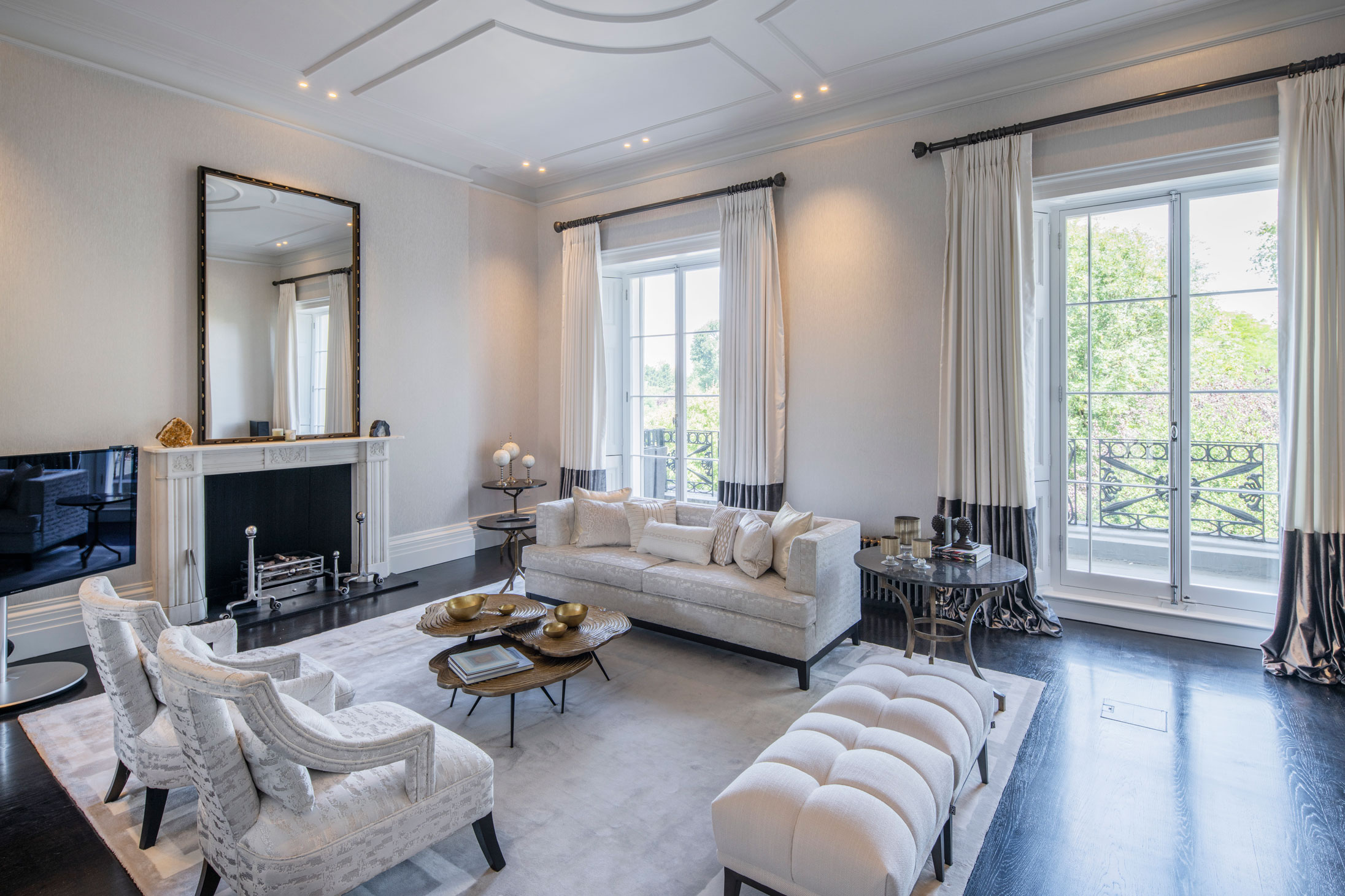
The grand first floor drawing room interconnects with the library, creating a large formal entertaining space that spans the entire depth of the house, with French windows opening onto front and rear balconies, offering elevated views over the front and rear facades
Designed by neoclassical architect John Nash, the white-stucco house was built in 1822-23 by John Mackell Aitkins as part of a Palladian terrace of 20 grand houses, named after the Viceroy of Hanover, designed by the Crown Estate for the family and friends of HRH The Prince Regent. The property is one of the largest houses in what is acknowledged as the finest of the Nash Regency terraces, and has recently undergone a beautiful and comprehensive restoration and detailed refurbishment and modernization.
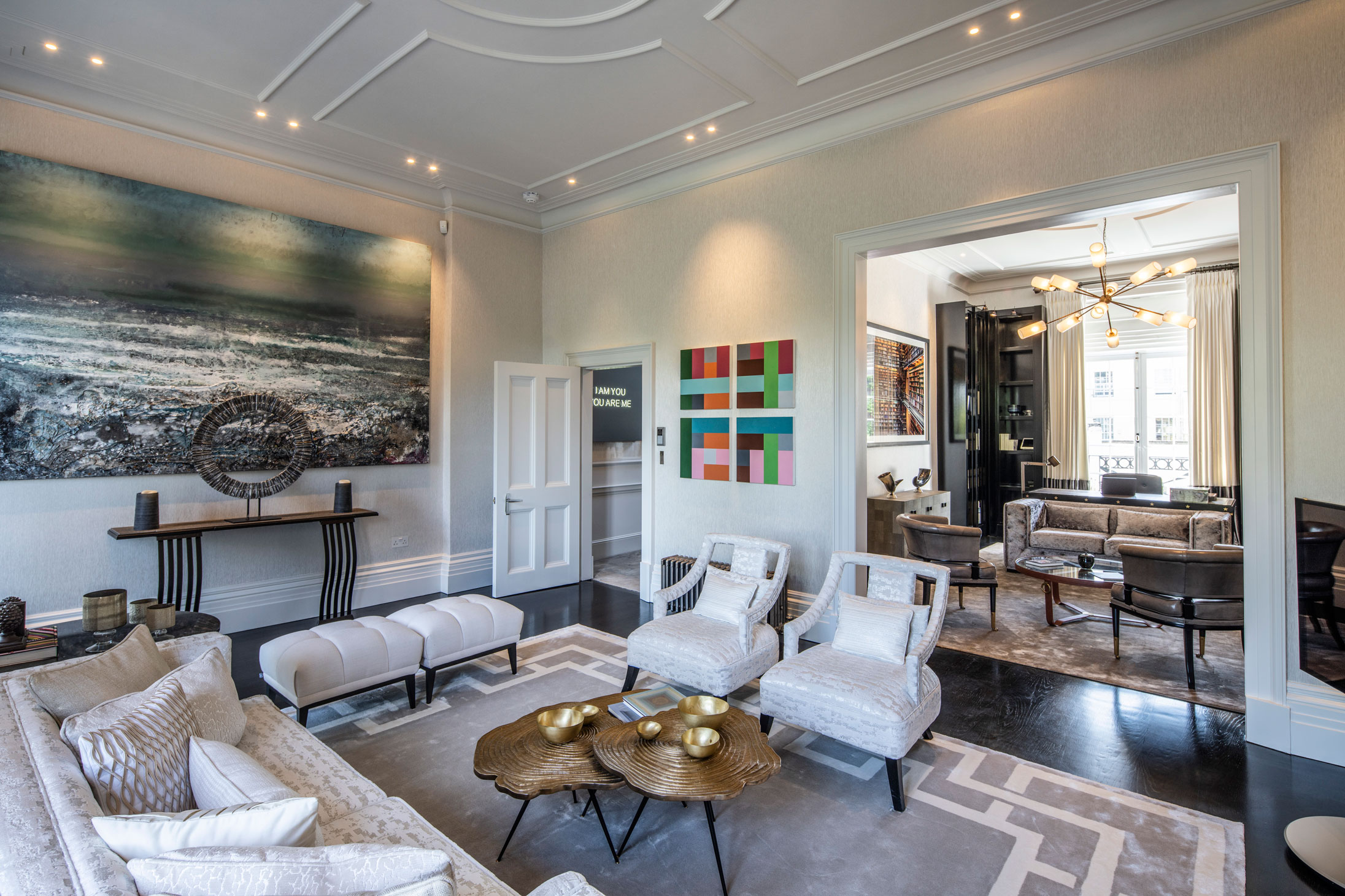
Providing views over Regent’s Park (below), the main house offers luxurious accommodation over lower ground, ground, first and two upper floors. There is a grand first floor drawing room and library; dining room, sitting room and family kitchen and breakfast room on the ground floor; media room, gymnasium/fitting room, wine cellar and staff accommodation on the lower ground floor; and five bedroom suites, three with ensuite facilities and two sharing a bathroom, on the two upper floors.
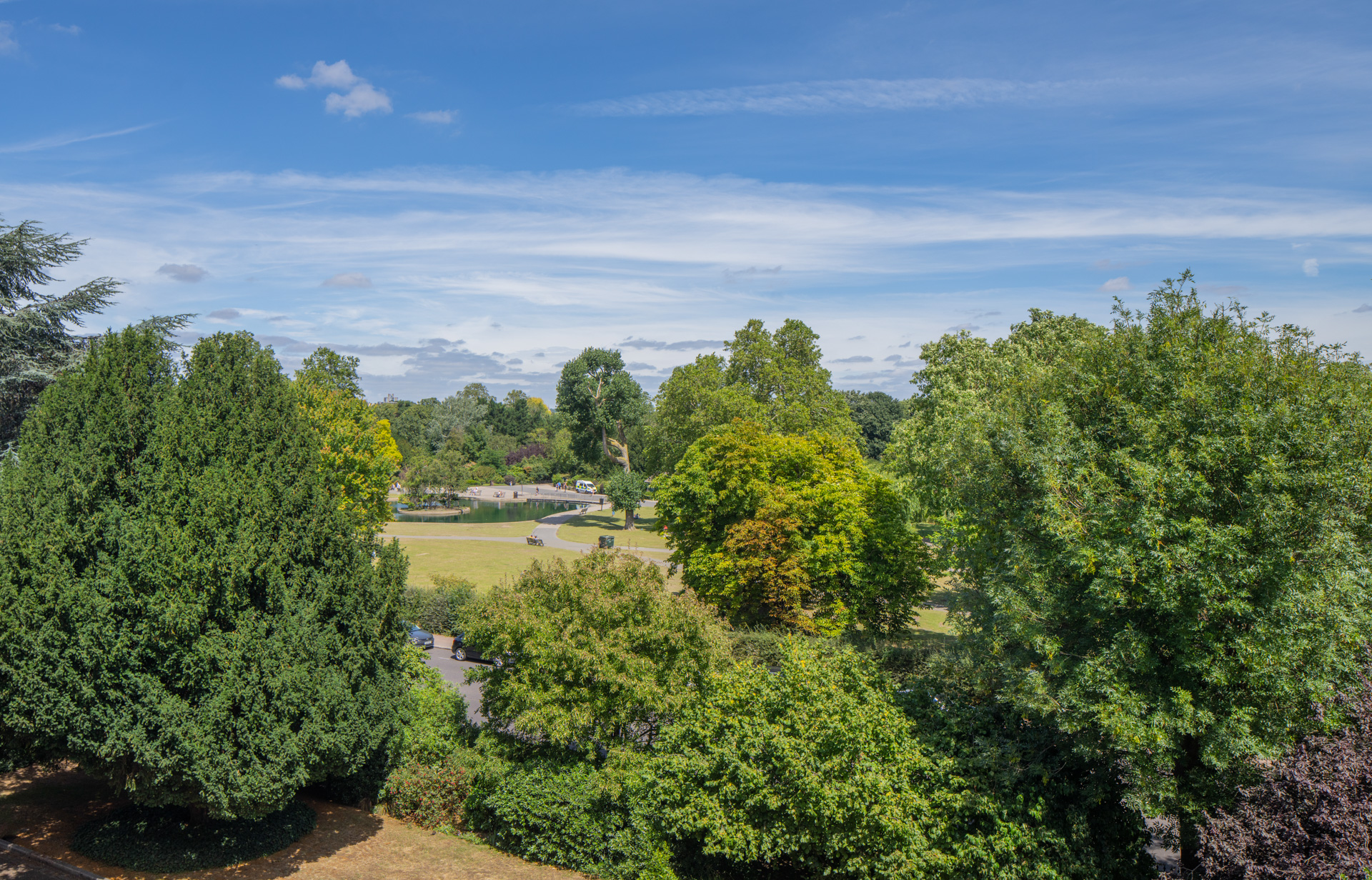
The house has a colorful history as the home of one of the 'founding fathers' of the much loved British cup of tea. The first owner of the house between 1825 to 1828 was Major-General Ogg, a military serviceman and director of the East India Company.
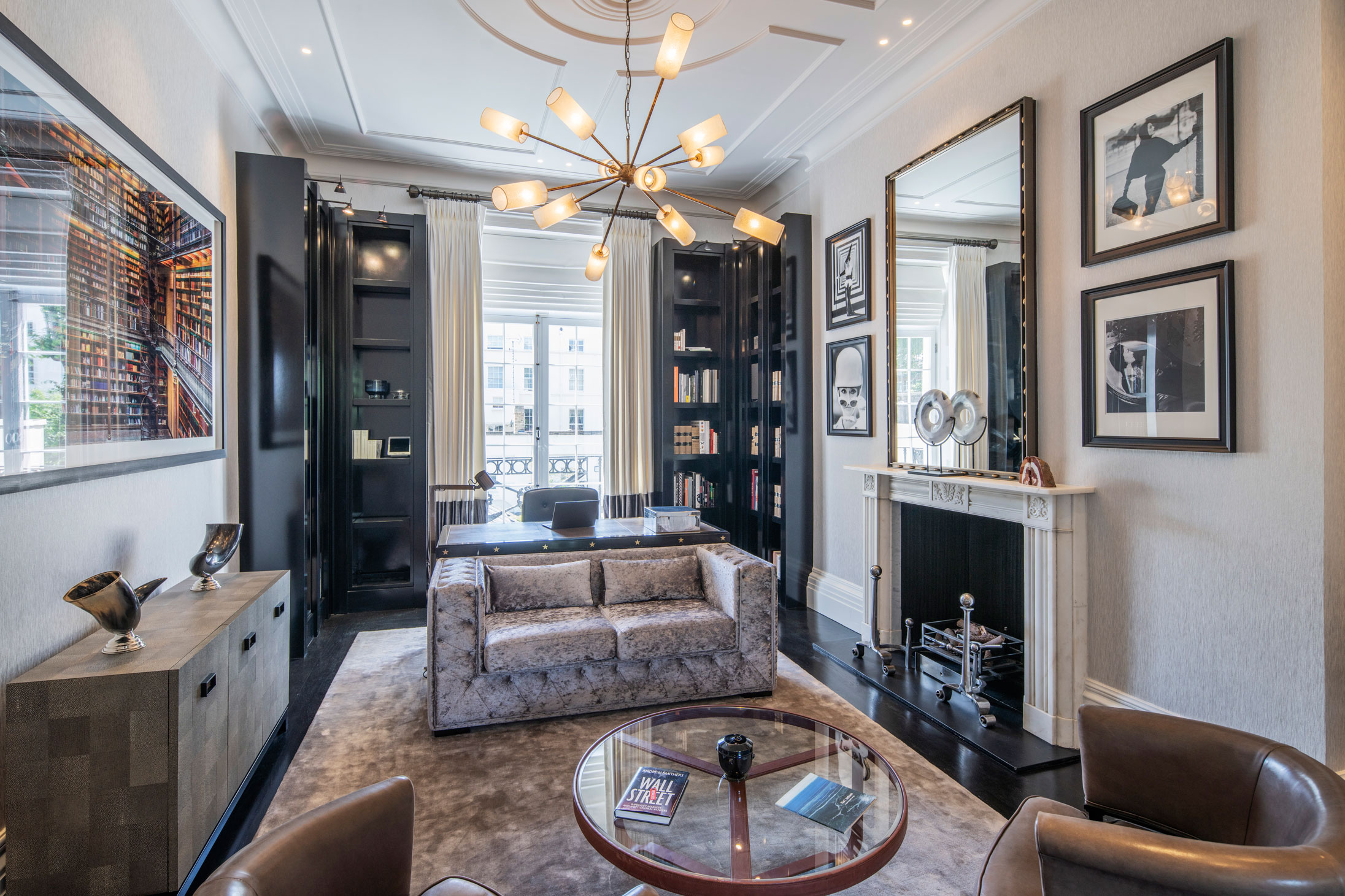
Upon Ogg’s death in 1828 the house was purchased by tea tycoon Baron Solomon Benedict de Worms (1801-1882), a member of the Rothschild banking dynasty whose grandfather was Mayer Amschel Rothschild.
Sign up to the Homes & Gardens newsletter
Design expertise in your inbox – from inspiring decorating ideas and beautiful celebrity homes to practical gardening advice and shopping round-ups.
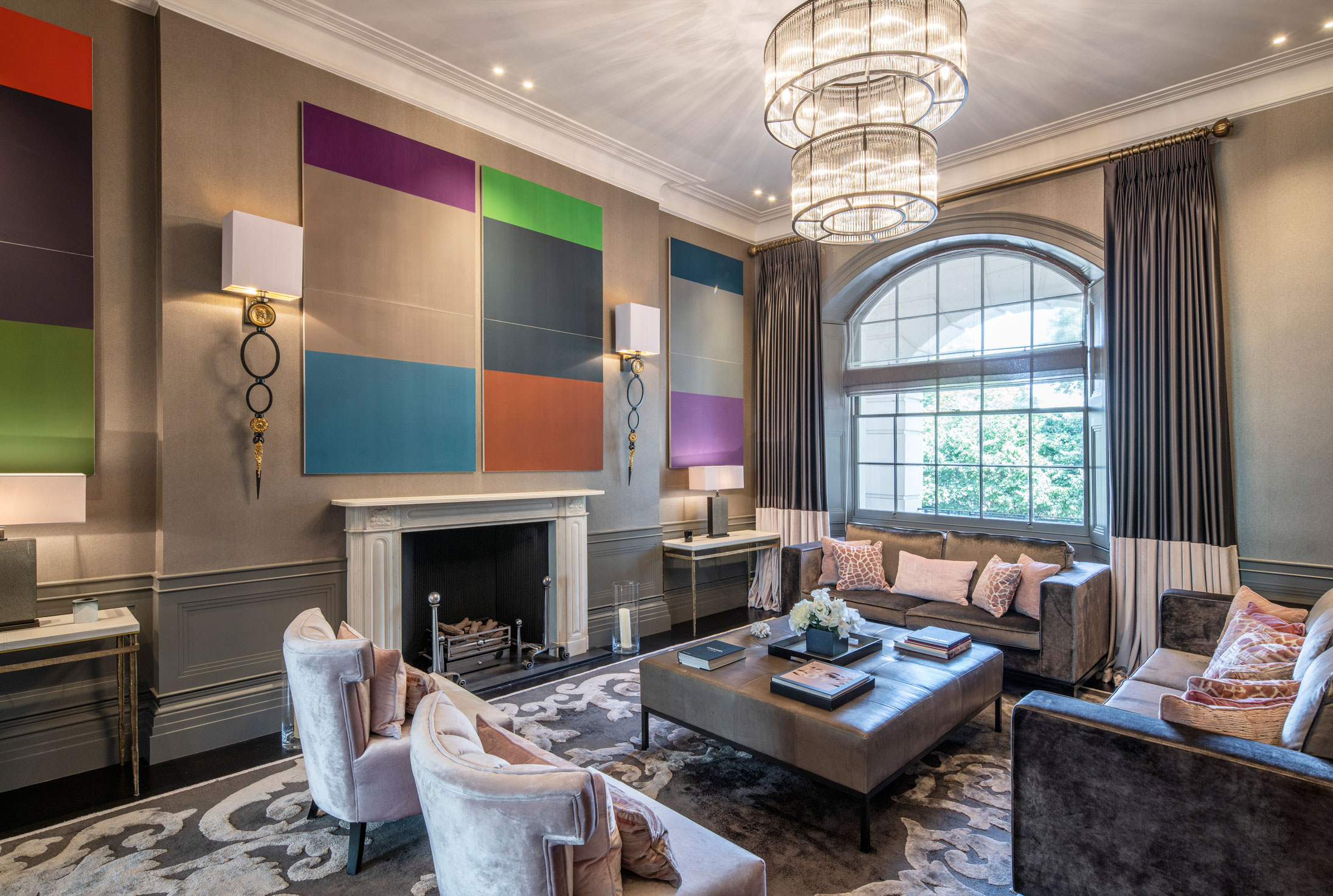
The 8-10 seat dining room and sitting room on the ground floor lead into the adjoining kitchen and breakfast room which opens onto balcony leading down to the garden
Frankfurt born and London based Solomon married on the 11th July 1827 heiress Henrietta Samuel, the daughter of banker Samuel Moses Samuel, with the house on Hanover Terrace serving as the couple’s new marital home. The couple had four children, George (born in 1829), Anthony (b1830), Ellen (b1836) and Henry (b1840).
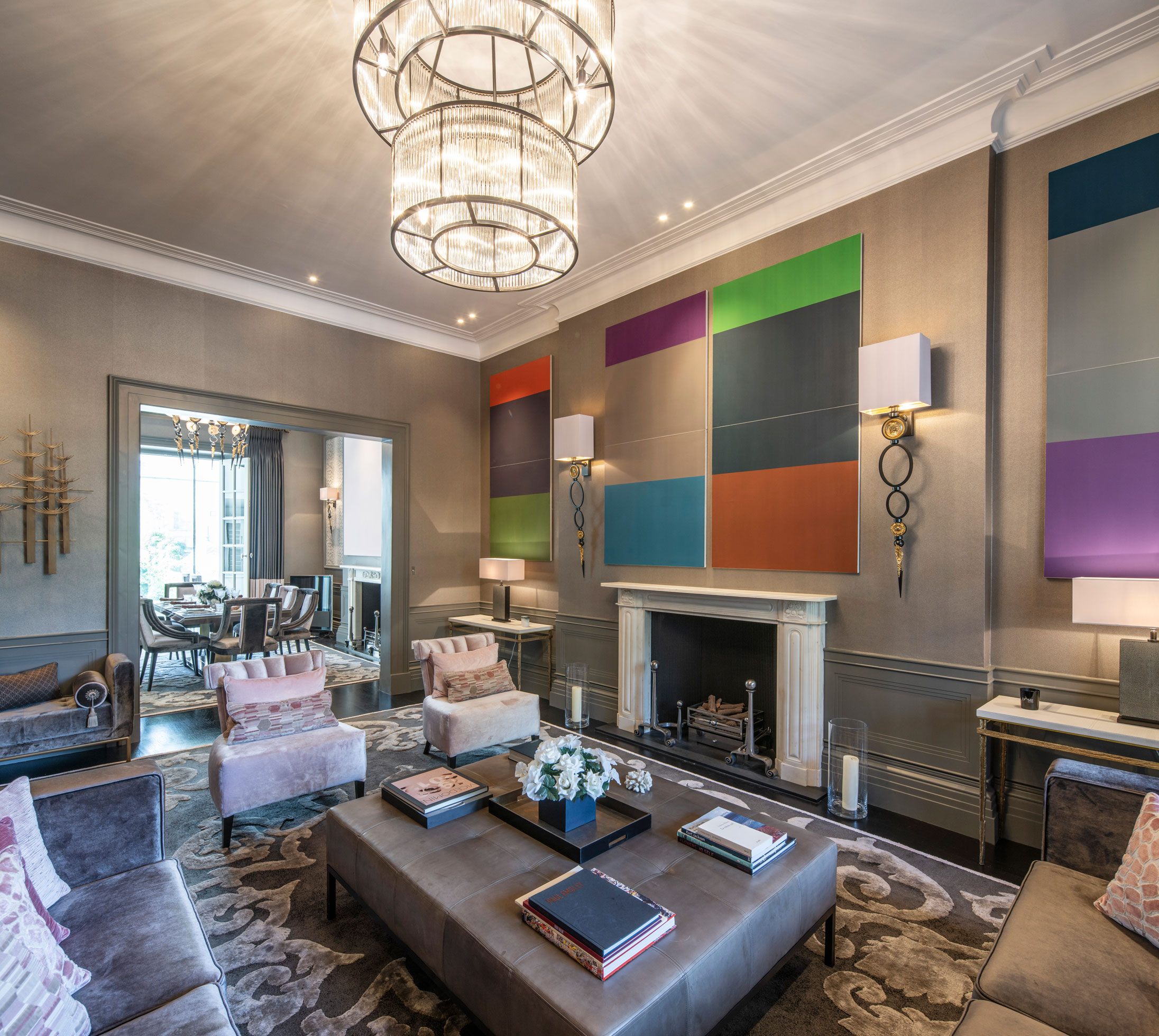
Solomon and his brothers Maurice and Gabriel made their fortune by setting up in 1841 the Rothschild Tea Estate, a vast 2,000 acre tea plantation in Ceylon (now Sri Lanka). Tea plants had been brought to Ceylon by the British from China in 1824 and over the following decades tea production in Ceylon increased dramatically so that by 1899 the area under cultivation exceeded 400,000 acres.
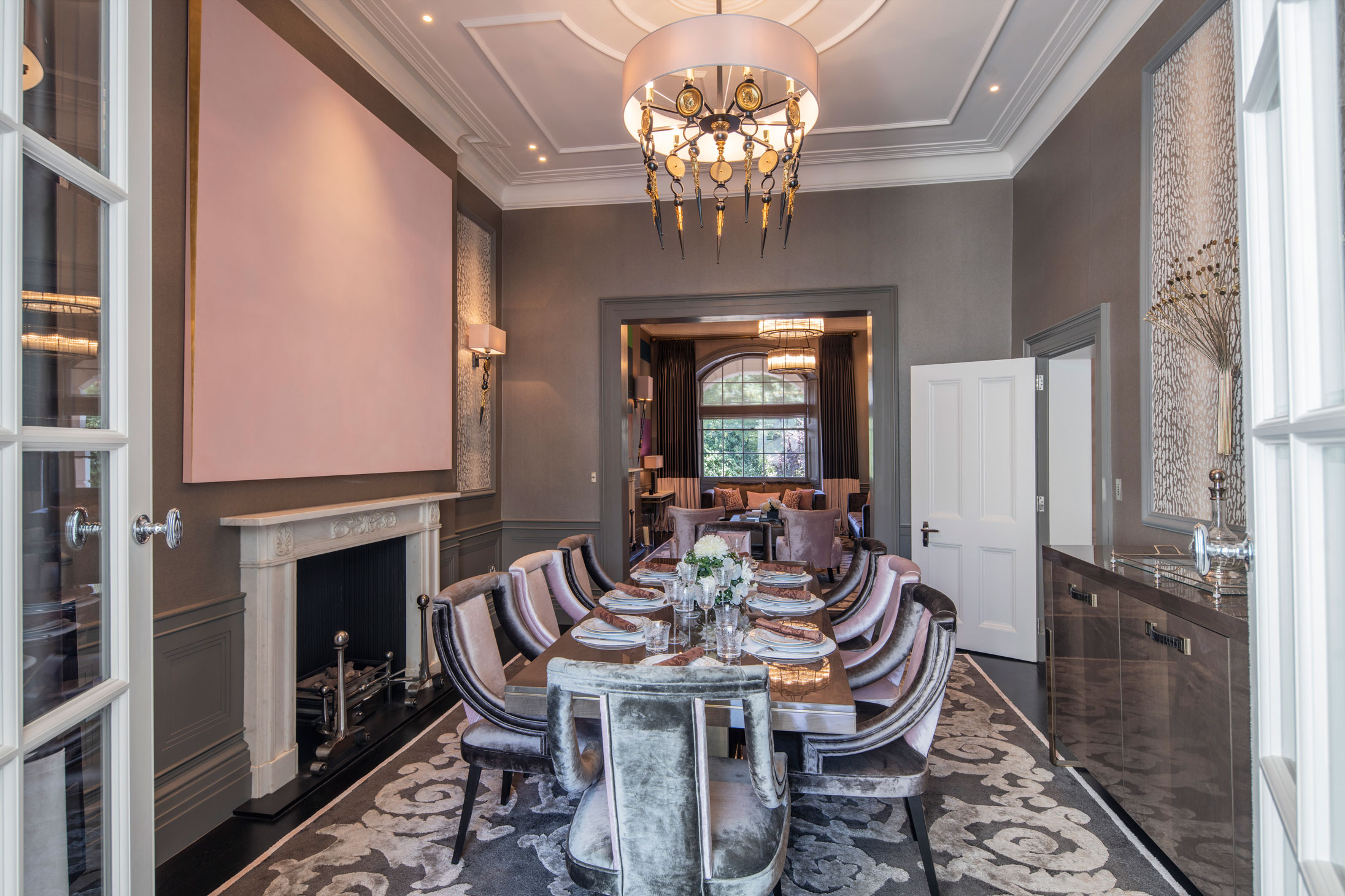
Between 1840 and 1865 Solomon spent time in Ceylon building up the family’s tea plantations and factories, which made the family extremely wealthy. Solomon and his brothers cleverly marketed tea in Britain as a healthy beverage for the aristocracy and the upwardly mobile middle-class.
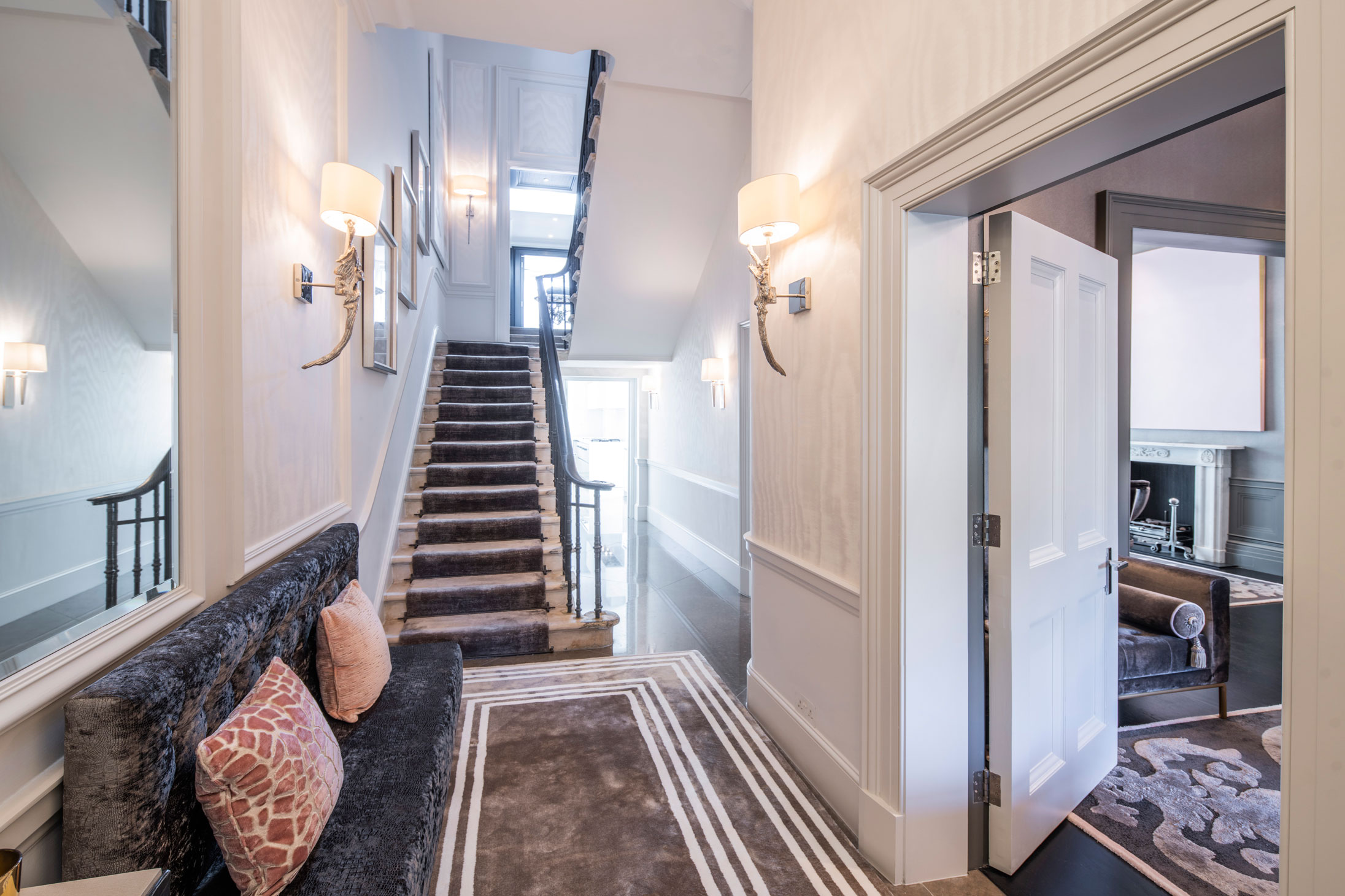
During the Victorian era tea became Britain’s staple hot beverage drunk for breakfast, lunch and afternoon tea. Queen Victoria adored a Twinings cup of tea (it remains the Royal Warrant holder) and where the Monarch led the nation followed with tea shops opening across London operated by firms including Twinings and Liptons. By 1884 London had become the global centre of the international tea trade.

Perhaps not surprisingly, given the origins of their wealth, Solomon and his wife Henrietta created a special 'tea house' in the garden of their home at Hanover Terrace, the mews property having a main tea/lounge room with a dramatic vaulted roof, opening onto a terrace and the garden. The tea house enabled the family to take afternoon tea either indoors or outdoors depending on the weather.
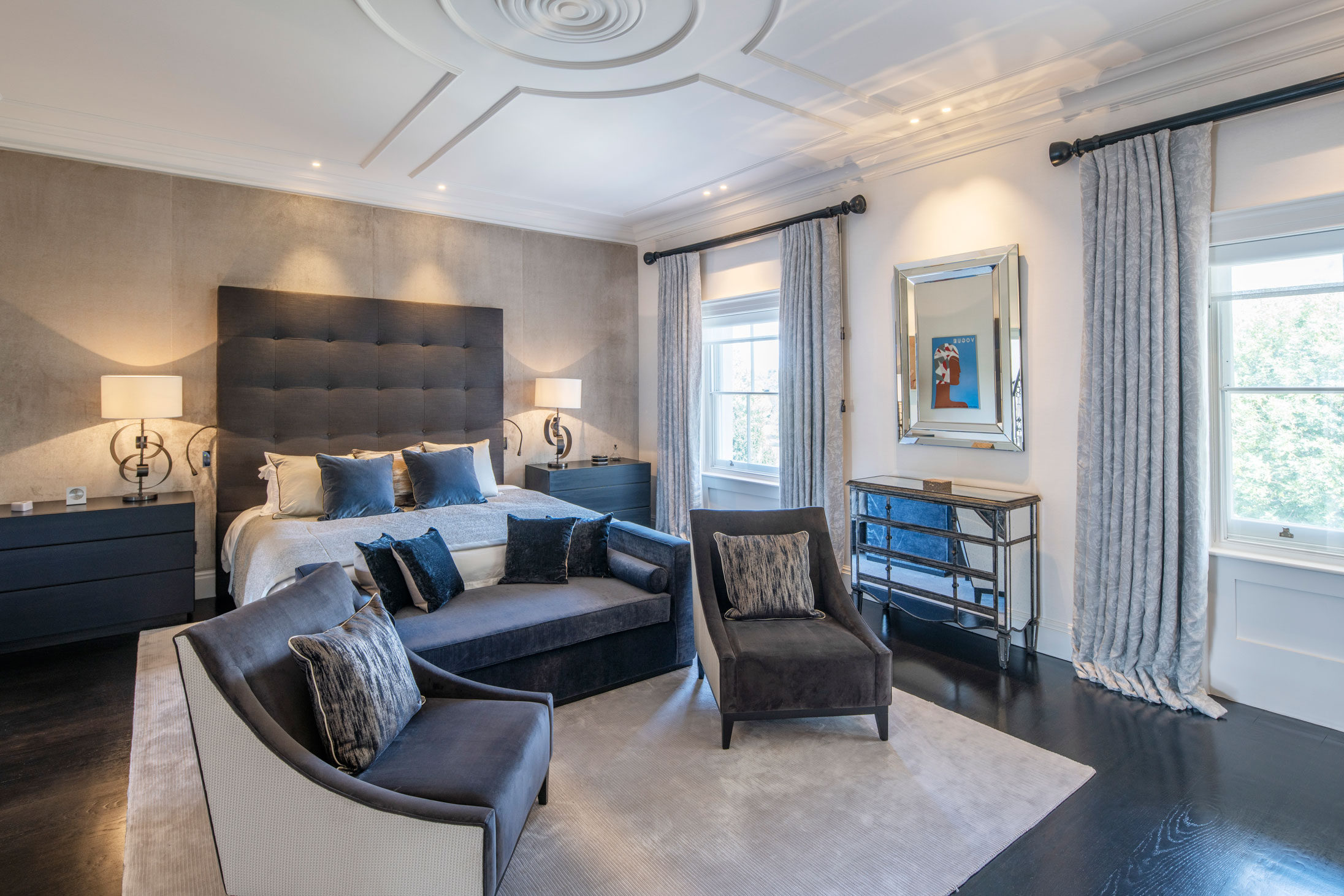
The master bedroom suite occupies its own private floor on the second level of the house and features a large bedroom, walk-in dressing room and master bathroom
In 1871 Solomon was created 1st Baron de Worms by Emperor Franz Joseph I of Austria, for services to industry, and in 1874 the tea loving Queen Victoria gave him special dispensation to use his Austrian title in Britain where it was recognized at Court.
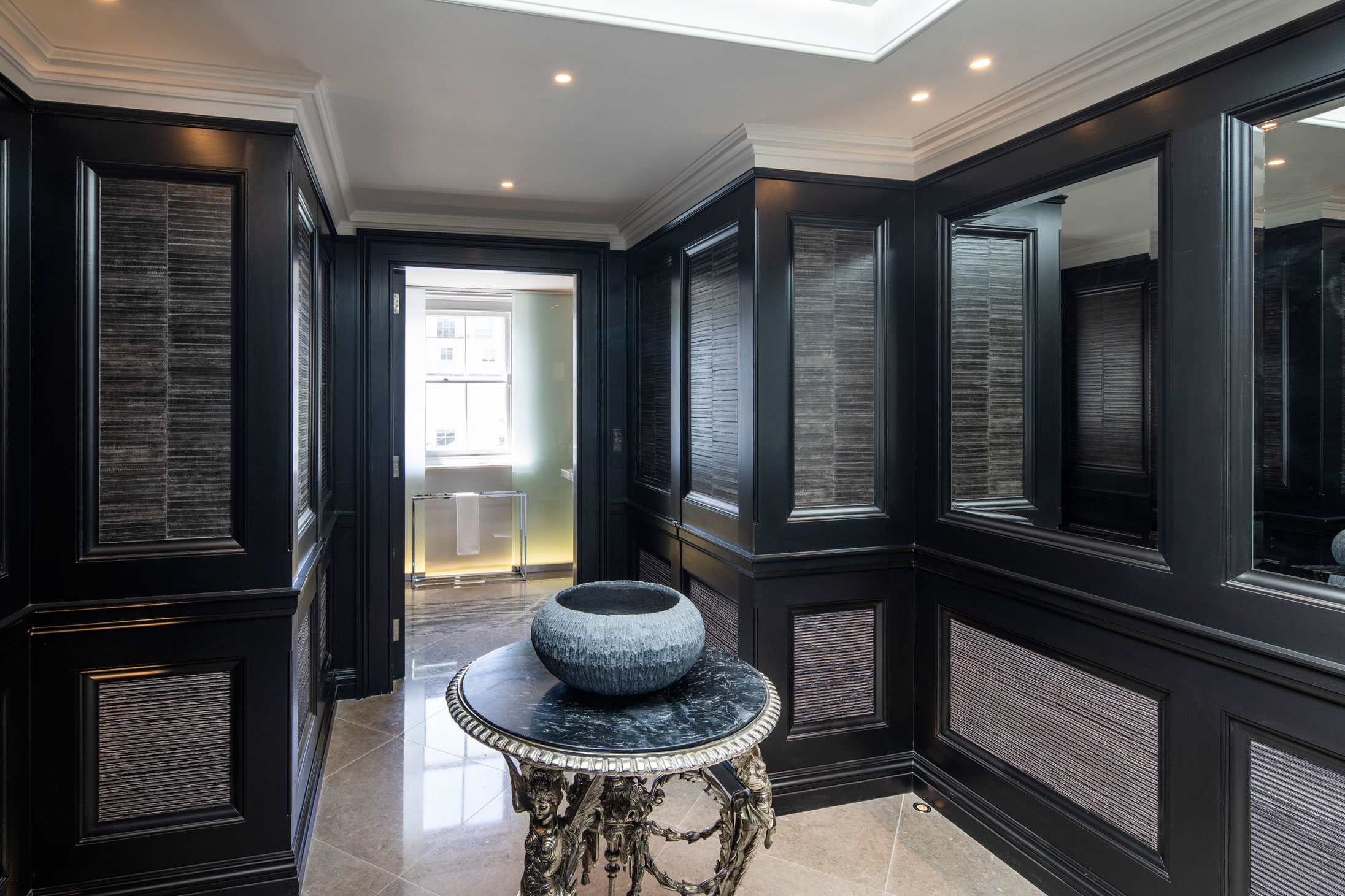
Solomon died in 1882 aged 81 and he and his brothers were succeeded in the tea business by Solomon’s son Henry, who became the 1st Baron Pirbright.
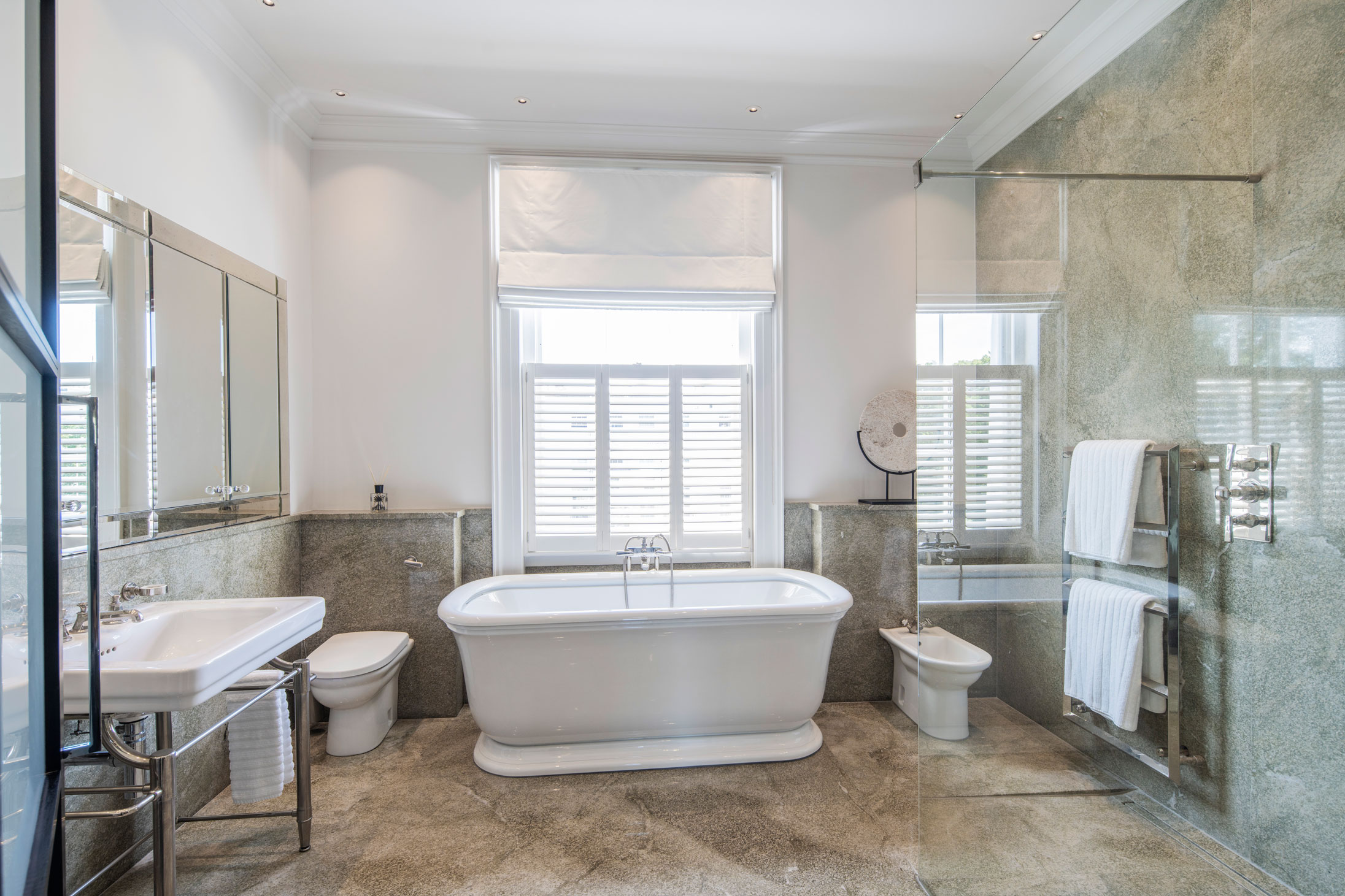
In 1901 the house was purchased by Marianna Floretta Raphael, an artist, who transformed the Rothschild’s tea house into an artist’s studio where she exhibited her oil paintings and sketches. The Raphael family owned the Hanover Terrace house for over a decade and it has remained in private hands, owned by several different families, ever since.

Fast forward to today and the Hanover Terrace house has been completely refurbished and modernized since the Rothschild and Raphael family’s time in the property although the Rothschild’s tea house (below) still remains at the end of the garden, providing a perfect venue for informal entertaining, especially during warm weather.
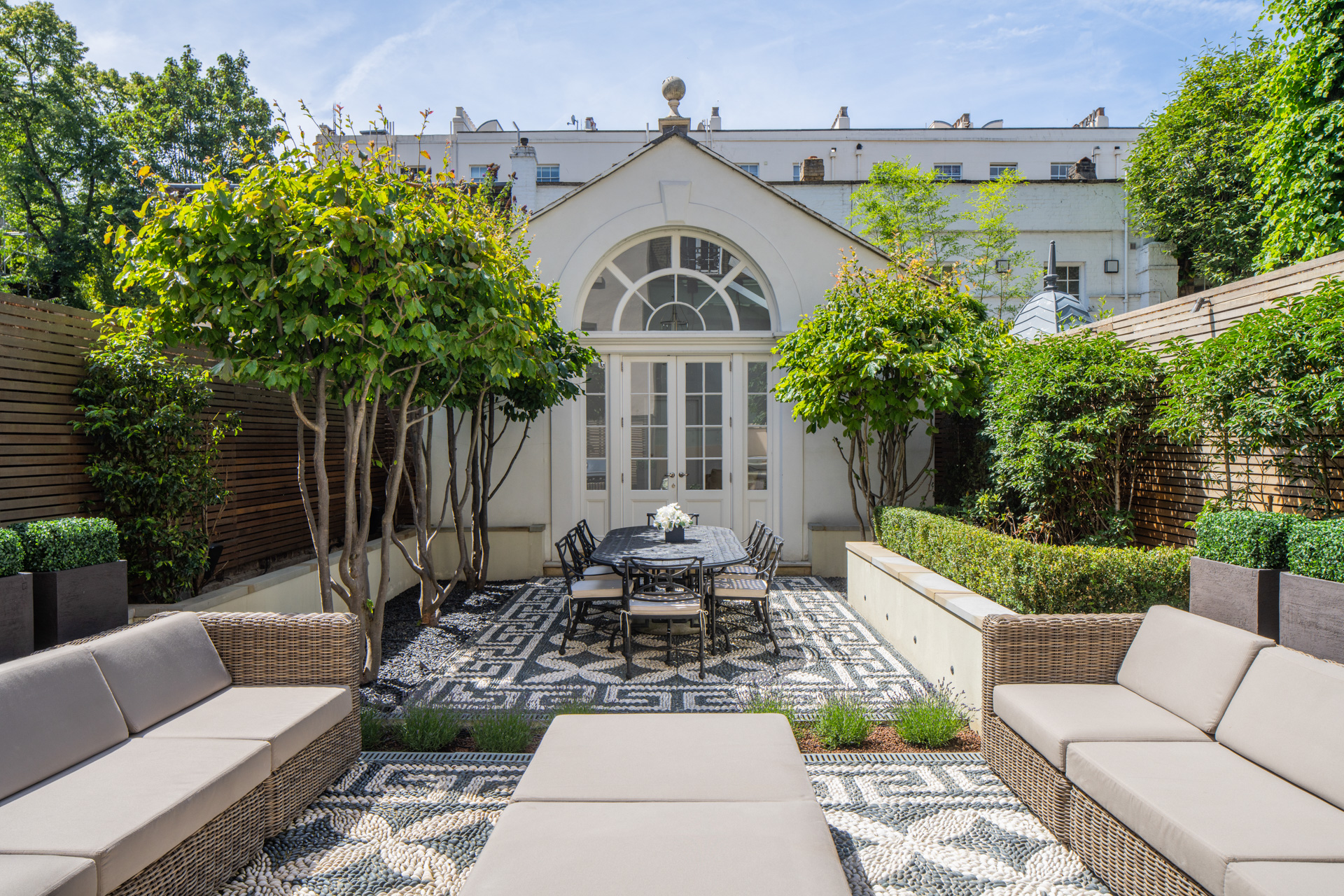
At the end of the large private garden, there is a tea house, created by the Rothschild tea dynasty
The house and tea house/mews on Hanover Terrace is priced at £17,950,000. For more information, visit Beauchamp Estates.

Lucy Searle has written about interiors, property and gardens since 1990, working her way around the interiors departments of women's magazines before switching to interiors-only titles in the mid-nineties. She was Associate Editor on Ideal Home, and Launch Editor of 4Homes magazine, before moving into digital in 2007, launching Channel 4's flagship website, Channel4.com/4homes. In 2018, Lucy took on the role of Global Editor in Chief for Realhomes.com, taking the site from a small magazine add-on to a global success. She was asked to repeat that success at Homes & Gardens, where she has also taken on the editorship of the magazine.
-
 ‘It leads to more headaches than it's worth’ – 4 reasons you should never store things in your oven, including fire risks and serious illness
‘It leads to more headaches than it's worth’ – 4 reasons you should never store things in your oven, including fire risks and serious illnessYour oven is for cooking, and cooking only, experts urge
By Chiana Dickson
-
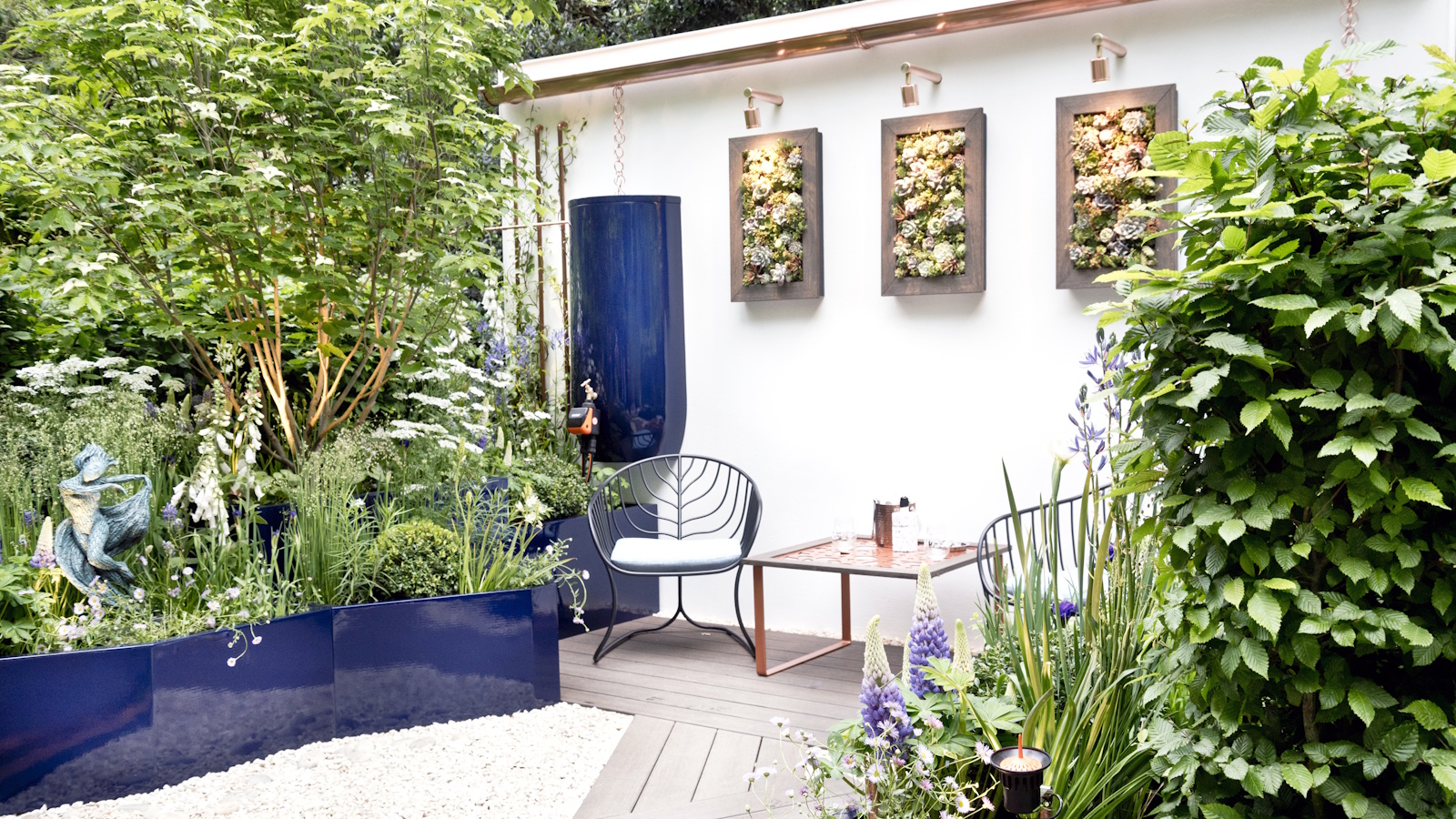 Urban gardening ideas – 7 creative ways to grow in small spaces, balconies, containers, indoors, and more
Urban gardening ideas – 7 creative ways to grow in small spaces, balconies, containers, indoors, and moreMake the most of your space with these innovative ways to garden
By Tenielle Jordison